One of the greatest empires in the history of human civilization, the ancient Roman Empire, was born from the Roman Republic which began in 509 BC. Emperor Augustus (son of Julius Caesar) created the Roman Empire in 27 BC, and it reached its height in 117 AD. At its peak, the Roman Empire consisted of parts of Europe, North Africa, Britain, and the Middle East. Although Augustus didn’t expand the boundaries during his reign, his successors had a different approach.
The Roman state grew exponentially in territory and power through a land-grab method which applied to cities, towns, districts, and even whole countries. This gradually led to the “Romanization” of the provinces surrounding the capital at Constantinople, which was a strategic location when the empire expanded north. The success of the empire was due to diplomacy and the strategic skills of the generals of the Roman army.
Here is a list of the 12 most noteworthy and influential Roman generals. List is ordered chronologically by their birth year.
1. Scipio Africanus (236–183 BC)
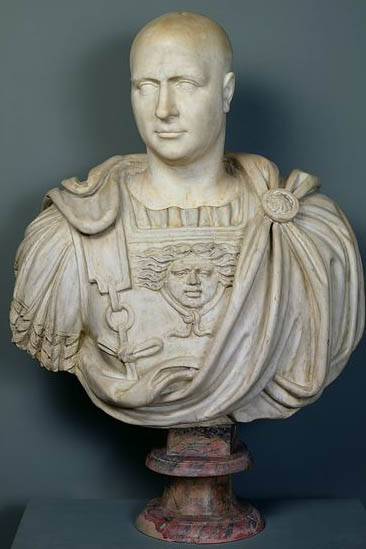
Scipio Africanus was born into one of Rome’s five patrician families in 236 BC. His father and uncle were both killed in the Second Punic War. At the age of 25, he followed his father and uncle into the military, securing a command position in the army. Scipio proved himself to be one of the most cunning war tacticians, and despite many previous defeats, he finally won the war against Hannibal in 202 BC.
In 218 BC he took part in a battle during which his father was taken captive, and he attempted, but failed, to free him. In 209 BC he formed an impenetrable defense and succeeded in taking Hannibal’s Spanish base. During the Battle of Baecula in 208 BC, he was able to beat Hannibal’s brother, and finally, during the Battle of Zama in North Africa, he defeated Hannibal’s forces completely. Afterwards, Hannibal was forced to sign a peace treaty ending the First Punic War.
2. Lucius Cornelius Sulla (138–78 BC)
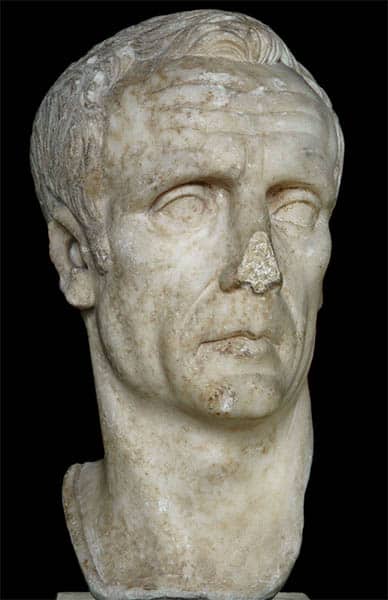
Sulla was born in 138 BC in Puteoli near Naples. His family was not influential or wealthy, though they did have a political background. Despite this, Sulla was well educated and fluent in Greek (a sign of a good education in Rome). Somehow, he managed to work his way up through the elite of military and political society.
In 112 BC, during the Jugurthine War, Sulla was involved in the defeat of King Jugurtha of Numidia. After a long and drawn-out war, Sulla was sent to eliminate support for Jugurtha in the neighboring province of Mauretania. A skilled negotiator, Sulla was able to capture Jugurtha and bring the war to an end.
3. Gnaeus Pompeius Magnus (106–48 BC)
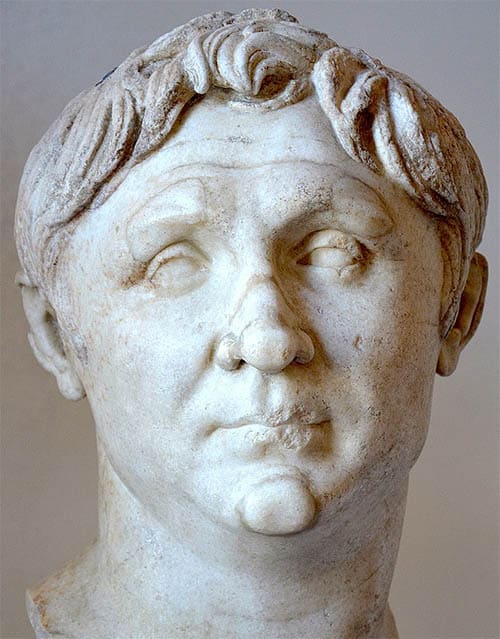
Gnaeus Pompeius Magnus, or more commonly Pompey the Great, was born into a wealthy senatorial Italian family. His father was a Roman noble under whom he learned military strategies and political diplomacy. His father died in 87 BC when Pompey was only 19.
Pompey the Great was a commander in the Roman Republic during its final chaotic decades. His name Magnus means “great,” and he was given this title by the people because he was an inspirational leader. He was a commander in Sulla’s civil war in 83 BC, defeating Gaius Marius for good and freeing Rome. His part in this victory earned him the reputation of a great general, but also the nickname of the “teenage butcher” by his enemies.
Pompey received special privilege and was awarded a military force of 120,000 men and 500 ships so that he could carry out the task of eradicating pirates from the Mediterranean. He succeeded in this task by dividing the Mediterranean into 12 zones.
4. Gaius Julius Caesar (100–44 BC)
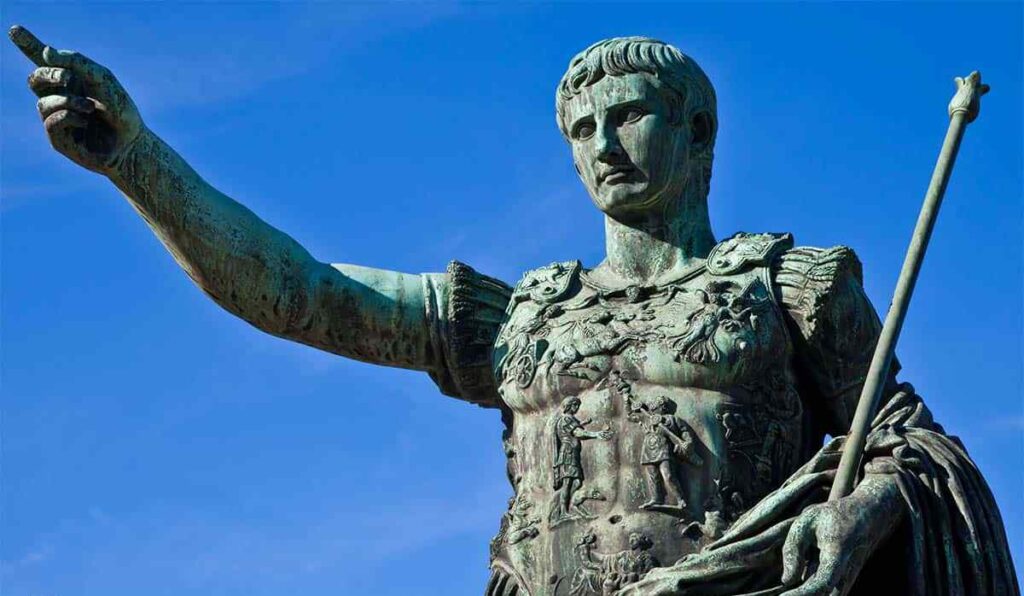
Julius Caesar started his military career in 81 BC with the Siege of Mytilene. He was soon an unstoppable force in the military and by the age of 31 became involved in Roman politics. It was Julius Caesar who invaded Britain twice and helped the administrative ruler to win over the crown. In Egypt, he installed Queen Cleopatra after defeating Pharaoh Ptolemy XIII during the Battle of the Nile in 47 BC.
One of his most famous achievements as a military commander was the conquest of Gaul against native tribes. Although Gallic tribes had a strong military, Caesar took advantage of their internal divisions and backed them into a corner with no other choice but to surrender. This allowed Rome to secure the River Rhine as a boundary.
Caesar started the Great Roman Civil War in 49 BC against an old rival, Pompey, forcing him to flee to Macedonia within just 70 days. It is said that Caesar won the Battle of Pharsalus against the odds as he was heavily outnumbered.
5. Marcus Antonius (83–30 BC)
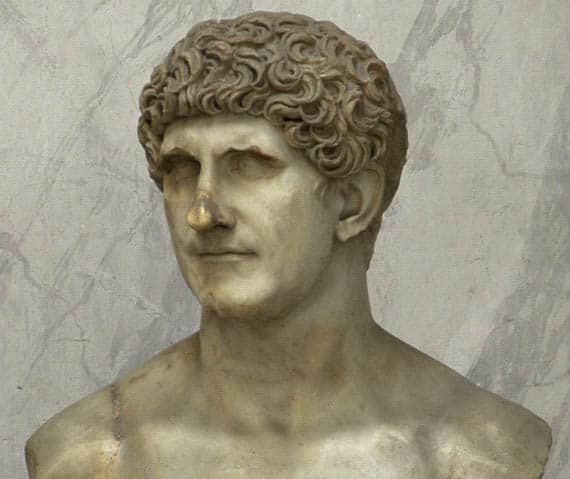
Commonly known as Mark Antony, he was a senior commander of Rome and a tactician also known for his statesmanship. He was the second most powerful man during the rule of Julius Caesar. He began public life as a representative of the people but was eventually drawn towards power and empire building. After the death of Julius Caesar, he took over most of the eastern region of the Roman Empire.
Mark Antony started his military career in Syria when he was quite young, soon rising to the position of cavalry commander. Afterward, he was ordered to go to Egypt and Judea where he served under Julius Caesar in the Gallic Wars of 54 to 50 BC. At 22 years of age, he had already become senior to most of his peers and soon acquired a position as a public figure who spoke on behalf of Caesar.
After the death of Caesar, he refused to hand over Caesar’s funds to Octavian (Caesar’s posthumously adopted son) and marched against him. Unfortunately, he was defeated and fled Italy.
6. Marcus Vipsanius Agrippa (63–12 BC)
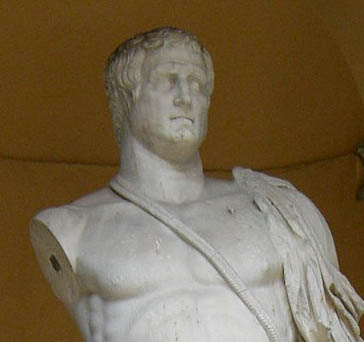
Agrippa was Octavian’s chief military commander and helped him secure power after the death of Julius Caesar. He constructed Portus Julius harbor when in charge of the Roman fleet, joining lakes Avernus and Lucrinus Lacus, and this played a strategic role in defeating Sextus Pompey’s fleet. It also allowed him to secure two victories in the Bay of Naples and to be awarded the golden crown.
He was also known for his civic duties. When Octavian became emperor, he worked closely with him to create roads and buildings, and he promoted cultural activities by organizing festivals. He also reformed and renovated Rome’s aqueducts and inland waterways, and extended the Aqua Marcia aqueduct which brought water to many other parts of the province.
7. Nero Claudius Drusus (38–9 BC)
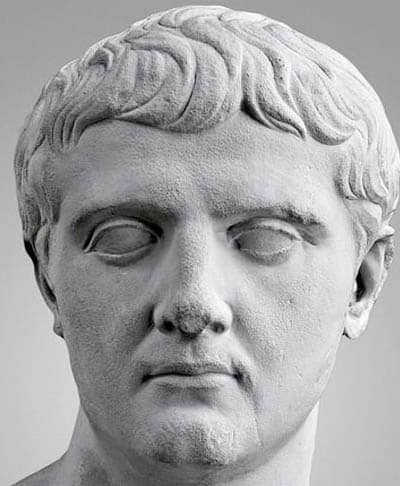
The stepson of Augustus (rumored to be his real son with Livia Drusilla), Drusus took office five years earlier than the specified age. At the age of 11, he became a magistrate and fought alongside his elder brother Tiberius Claudius against the Alpine tribes, the Raeti and Vindelici.
Drusus led an expedition into Germany to establish base camps, and he was the first Roman commander to lead a campaign on the Rhine. Drusus spread his campaign as far as the Weser and Elbe rivers and subjugated the Marcomanni and Cherusci tribes a year later.
8. Gnaeus Julius Agricola (40–93 AD)
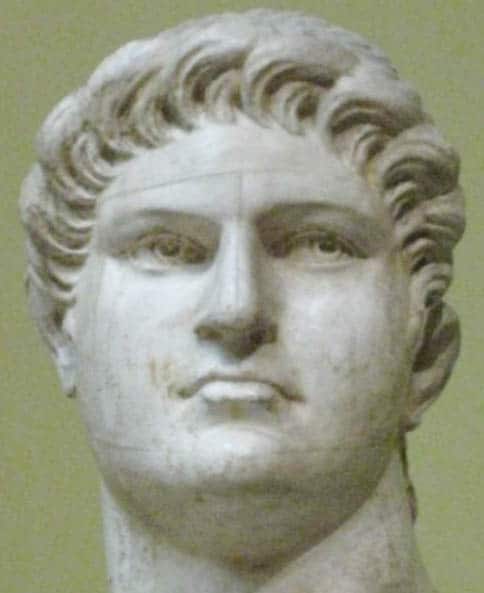
Agricola was known as the first commander to place the whole of Britain under Roman rule, even serving as governor there for a good few years. He initially held office in Rome but was sent by Emperor Vespasian to serve as a commander in Britain. Later he became the governor and conquered the whole island. As governor, he constructed at least 60 forts, Romanizing the public there and introducing the nobles to a Roman education.
9. Marcus Ulpius Traianus (53–117 AD)
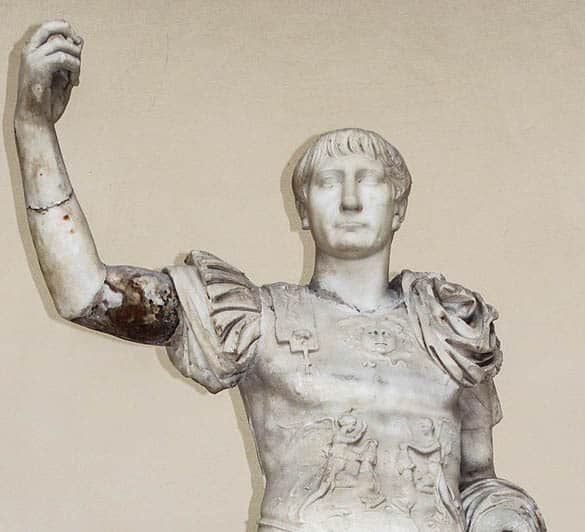
Marcus Ulpius Traianus, or Trajan, was born in the provincial Roman region of Baetica, his father being the only one in the family to have an imperial career. There are very few records of Trajan’s early life; he grew up traveling with his father to various military headquarters.
In 89, Trajan ordered troops to the Rhine to quash a rebellion against Emperor Domitian. He was rewarded by the emperor in 91 and was given one of the two consulships.
10. Septimius Severus (145–211 AD)
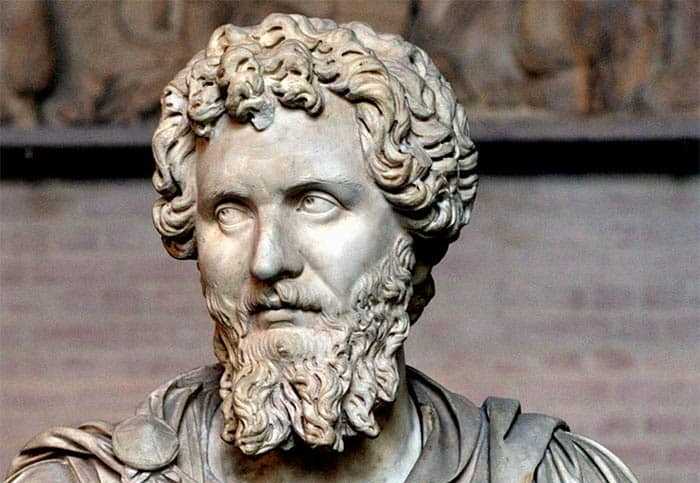
Septimius Severus was born into an elite family from Libya. His family members had held powerful positions in politics and the military; some were in senatorial positions while others were even more powerful. His cousin became a consul and appointed Severus to the position of chief military commander or legatus. This was the beginning of his political as well as his military career.
In 197 he traveled east, gathered an army, and crossed the Euphrates to annex the small kingdom of Edessa as a Roman province. He even kept the heir to the throne as a hostage in an attempt to gain support and rise to the position of emperor. In the following years, he seized most of his power by military force, which made him unpopular in the Senate.
He took decisive action against corrupt senators and ordered a dozen executions during his reign. Severus also brought about military reform by dissolving the Praetorian Guard, which was made up of high-class soldiers and was meant to defend and protect the emperor. He instructed them to train other troops to do the job instead, thus creating a huge general army to protect Rome.
11. Flavius Valerius Constantinus (272–337 AD)
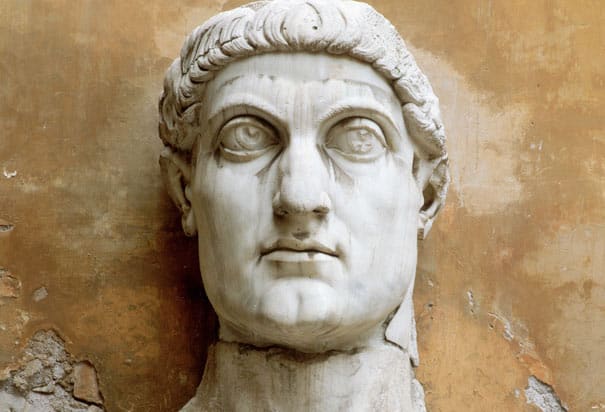
Flavius Valerius Constantinus, or Constantine the Great, was the son of an officer who served in the Roman army. After his father left his mother and married the daughter of the Western emperor, he was sent to the court of the Eastern Roman Empire where he was educated and influenced by Christianity.
In 312, he fought in Italy on Milvian Bridge on the Tiber River. He also defended Rome on other fronts and played a key role in the civil war. Constantine’s victory cemented his claim to be the next emperor. Evidence that he was the first ever Christian ruler can be seen from the crosses he added to his soldiers’ shields during the civil war.
12. Flavius Aetius (391–454 AD)
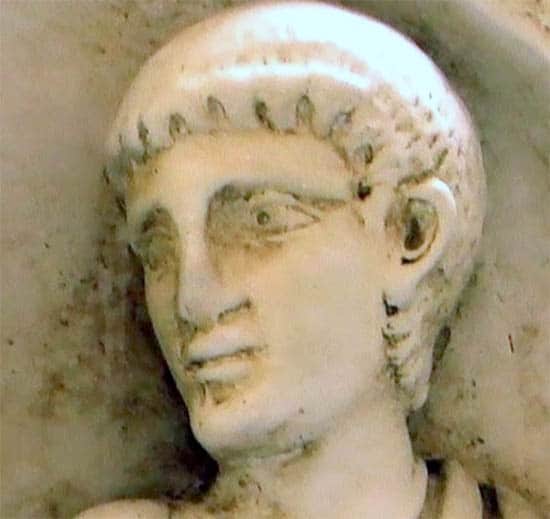
Aetius served in the imperial court, worked in the Protectores Domestici (the guard unit which protected the emperor) as a boy, and then gradually rose to become a tribune member, paving the way for his future political career.
Aetius led the Roman forces into battle in the Battle of Catalaunian Fields or the Battle of Chalons. This took place in 451 AD in Gaul (now France). The battle was fought in the dying days of the Roman Empire during the third century of its rule. Aetius won this battle and helped to keep Rome stable, but not for long.
To secure his power as the true ruler of Rome, his first act was to negotiate a deal with the Vandal king to ensure that the supply of grain from Africa was unbroken. This secured the southern border, allowing him to look to threats from the Barbarians in the north.
His military and political tactics worked well but only for a short period.
Conclusion
These are just a few of the greatest Roman generals; Rome’s boundaries expanded and the provinces prospered under their political leadership. They inspired patriotism among the people and showed that anyone could rise through the ranks in the Roman Republic and the Roman Empire through military achievements. This led to an increase in respect for rulers and elite class members, thereby decreasing the probability of rebellion in the Roman Empire.
At the end of its fourth century of rule, the Roman Empire was divided into four major divisions controlled by different rulers. This was then followed by the reigns of what were known as the “Five Good Emperors,” namely Nerva, Trajan, Hadrian, Antoninus Pius, and Marcus Aurelius.
The main issue with a large empire like the Roman Empire was that the administration over such a wide area was difficult. Eventually, the system began to fall apart due to corruption and rebellion from subject kingdoms.